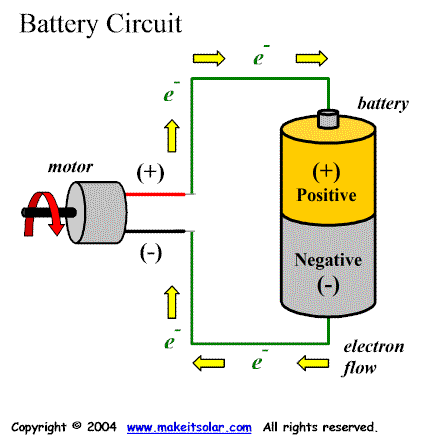Resistance in a battery is equal to length over area. R= L/A.
- Resistance is directly proportional to length. If length increases by four, than resistance increases by four.
- Resistance is proportionally opposite from the area. If the area increases by four, than the resistance will decrease by four.
Let's relate the circulatory system to a battery!
If we relate the following sources together:
Heart = battery
Blood pressure = Voltage
Blood = Current
We can see how similar the circulatory system intertwines to the function of battery.

http://www.emc.maricopa.edu/faculty/farabee/biobk/biobookcircsys.html
The heart pumping blood out into the body is relative to the positive end of a battery. As the heart pumps blood through the body the
resistance increases has it travels further away from the heart.
R=L/A, as the length away from the heart increases, so does the resistance.
Once the material reaches the capillaries, the resistance will decrease. This is because the capillaries have a lot of surface area for nutrient exchange.
As soon as the nutrients are exchanged, the travel continues back to the source (the heart) which is relative to the negative end of a battery.
http://www.makeitsolar.com/solar-energy-information/07-solar-cells.htm
The voltage is the energy that the current is carrying around the circuit, just like the blood pressure is the force
on the vessel walls that it takes to carry the blood around the body.
As the charge travels around the circuit moving away from the battery, voltage decreases
just like blood pressure decreases as it get further away from the heart.
Because the length that the voltage has to push the current around the circuit is increases, so is the resistance.
The voltage is the energy that the current is carrying around the circuit, just like the blood pressure is the force
on the vessel walls that it takes to carry the blood around the body.
As the charge travels around the circuit moving away from the battery, voltage decreases
just like blood pressure decreases as it get further away from the heart.
Because the length that the voltage has to push the current around the circuit is increases, so is the resistance.
